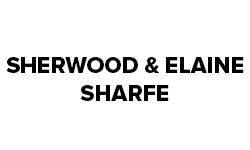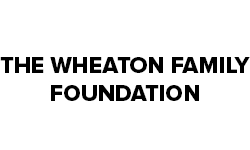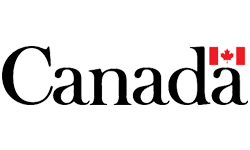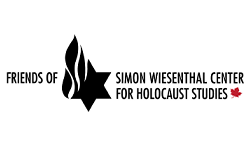CITIZENSHIP STUDIES GRADE 9: ENGAGED CITIZENS
Part A
Broad Area of Citizenship
Desired Results of Citizenship Study
Through the study of earlier societies, students analyze the impacts of empire building, territorial expansion and colonialism on various indigenous populations. In their research, students compare the factors that shape worldviews including time, place, culture, language, religion, gender identity, socio-economic situations and education, and how these factors are expressed in daily life.
Students are also asked to consider the challenges of obtaining accurate information about societies of the past.
As students appreciate the relationship between culture, land and resources, and historical events, they are encouraged to recognize the impact of worldview, personal and cultural identities on contemporary society.
Enduring Understandings of Citizenship Study
Students will understand that:
- History and current events are understood through diverse historical perspectives.
- Democracy requires discussion and consideration of alternate points of view in order to find a balance between individual perspectives.
- Citizens value the needs of the collective common good and consider how their actions impact the collective well-being.
- Canadian multi-cultural policies challenge citizenship tenets and require consideration of multiple perspectives.
- Canada’s history includes First Nations, Métis, and Inuit governance and perspectives and each have contributed to Canadian identity.
- Decision-making is a complex process with far-reaching impacts.
- Engaged citizens strive to be knowledgeable, uphold their rights, and act on their responsibilities.
- Enduring understandings are the big ideas that stimulate thinking, guide the inquiry and are linked to outcomes.
- Essential questions point to the “big ideas’ in the inquiry and should be considered and reconsidered as the inquiry progresses.
- Answers to these questions form the evidence of learning at the end of study.
Knowledge and Skill Development
- Everybody in a democratic process, everyone has a right to be heard.
- Democracy strives to find a balance between individual perspectives
- A strong democratic system enhances the value of all participants.
Students will be able to:
- Understand the democratic process within our government.
- Consider their personal place and responsibility in the democratic process.
Essential Questions
- What makes democracy work?
- How could democracy be improved?
- What is the relationship between rights and responsibilities?
- How do my actions influence others? How do the actions of others influence me?
- What is the impact of affirming multiculturalism in a democracy?
Curriculum Outcomes and Indicators
Sask. Curriculum Outcomes: Student Friendly Outcomes
IN9.1
Explain what constitutes a society.
Indicators:
- Relate the functions and services of institutions in the community (e.g., schools, churches, local governments, caregivers, parents, elders, traditional knowledge keepers) to the needs of the people in that community.
- Investigate the roles of individuals in the institutions of the local community, including the expectations attached to those roles (e.g., school: student, principal, teacher, caretaker, secretary; hospital: doctor, nurse, traditional healer, receptionist, paramedic, medical technician, patient?
- Research a list of characteristics and attributes that formulate a definition of a society.
- Compare two different societies studied including the attributes of leaders, the roles of various individuals, cultural traditions and ceremonies and means of sustenance.
- Apply the definition of society to one of the civilizations studied, and detail ways in which the civilization meets the criteria to be considered a society (e.g., How can Mesopotamia be called a society according to the formulated definition? Would Indigenous grouping of the plains and woodlands in North America meet the criteria?).
- Investigate diverse historical views regarding the terms ‘primitive’ and ‘civilized’, and analyze the effect of the perceptions of the concepts on ethnocentrism in colonizers.
- Analyze the effects of ethnocentrism on indigenous peoples.
IN9.2
Compare the factors that shape worldviews in a society, including time and place, culture, language, religion, gender identity, socio-economic situation and education.
Student Friendly: Compare factors such as time, place, culture, language, religion, gender identity, socio-economic situation and education and discuss their influence on the Canadian society of today.
Indicators:
- Explore personal student beliefs about some contemporary issues or problems (e.g., making friends; the role of technology in daily life; affordable housing; intergenerational families; global warning; post-secondary education; participating in religious or cultural ceremonies; designer clothing; healthy food choices; drinking and driving; violence).
- Define the concept of a worldview.
- Hypothesize about the reasons underlying the similarities and differences between the worldview of one individual and that of another person.
- Construct a comparison of the worldviews of the societies studied.
- Determine reasons for the similarities and differences between the worldviews of two societies studied.
- Illustrate the similarities and differences between a personal modern worldview and that of a society studied, and speculate why these similarities and differences occur.
IN9.3
Analyze the ways a worldview is expressed in the daily life of a society.
Student Friendly: Think of ways a worldview is shown in your everyday life.
Indicators:
- Distinguish the worldviews represented in the literature studied.
- Identify the architectural features which communicate the worldview of a society studied.
- Analyze how works of art of a society studied reveal elements of that society’s worldview.
- Examine the role of education in perpetuating the worldview of a society studied.
- Investigate the worldview of the local community as represented through features including literature, the arts, cultural celebrations and traditions, education (including Elder’s teachings if indigenous peoples), sports and recreation, and architecture.
DR9.1
Examine the challenges involved in obtaining information about societies of the past.
Student Friendly: What are the challenges when obtaining information about societies of the past?
Indicators:
- Analyze the advantages and disadvantages of oral accounts as sources of information about historical events.
- Describe the role of archeology in obtaining information about societies of the past.
- Explain various technologies used in archeology (e.g., shovels, brushes, carbon dating, GPS cartography, satellite imagery).
- Present results obtained and techniques used in ongoing archaeological digs (e.g., Wanuskewin, Eagle Creek; Point-a-Callieres, Montreal; Pompei, Italy; Dufferin Terrace, Quebec City; Fort Temiscaming, Quebec; Ahu o rongo, Easter island).
- Investigate the role of literature, visual arts, music, newspapers, photographs and other artifacts in obtaining information about past societies.
- Recognize the dynamic nature of historical knowledge by identifying examples of changes occurring in the interpretation of history as a result of new information uncovered or acknowledged.
DR9.2
Synthesize the significance of key historical events in societies studied.
Student Friendly: Select and represent key historical events in Canadian society and other societies studied.
Indicators:
- Represent in a timeline the key historical events in the societies studied.
- Relate the origins and the repercussions of an event in the history of the societies studied.
- Judge the importance of an event in the history of the societies studied to the people in the society in historical context as well as the current era.
DR9.4
Determine the influence of societies of the past on contemporary life in Canada.
Student Friendly: Explain how the societies of the past influenced contemporary Canada.
Indicators:
- Identify ideas, images, and symbols in contemporary life that have their roots in societies of the past (e.g., political, artistic, recreational, technological, mathematical and scientific).
- Analyze the impact of knowledge acquired from events on the future of contemporary societies (e.g., the decline of the Roman Empire, the attempted annihilation of indigenous cultures and languages, the power in the organization of large corporations, the contribution of indigenous peoples to the survival of newcomers at the time of contact, and the willingness to share the bounty and abundance of the land, sometimes through sophisticated arrangements known as treaties.
- Construct an inventory of references to traditional oral narratives found in current popular media, and determine the relevance of traditional narratives to contemporary society.
Outcome:
PA9.1
Examine concepts of power and authority in the governance of the societies studied.
Indicators:
- Differentiate the essential characteristics of various systems of government, including democracy, consensus, monarchy, autocracy, and military regime.
- Investigate and classify the systems of government in place at different periods in the history of the societies studied (e.g., democracy, consensus, monarchy, autocracy, military regime).
- Interpret the effect of the system of government on the worldview of the societies studied, in terms of who had power, and how government leaders obtained power (e.g., Iroquois chiefs chosen by clan mothers, European leaders selected by elite males) and how power was exercised.
- Explain the reasons underlying the existence of a particular system of government at a specific moment in the history of the societies studied.
- Define the concept of the rule of law and trace its origins in the societies studied.
- Draw conclusions about the effect of the rule of law on the worldview of the societies studied.
- Compare the distribution of power and the application of authority of a society studied to contemporary Canadian society.
© 2024 Concentus Citizenship Education Foundation Inc. All Rights Reserved.









